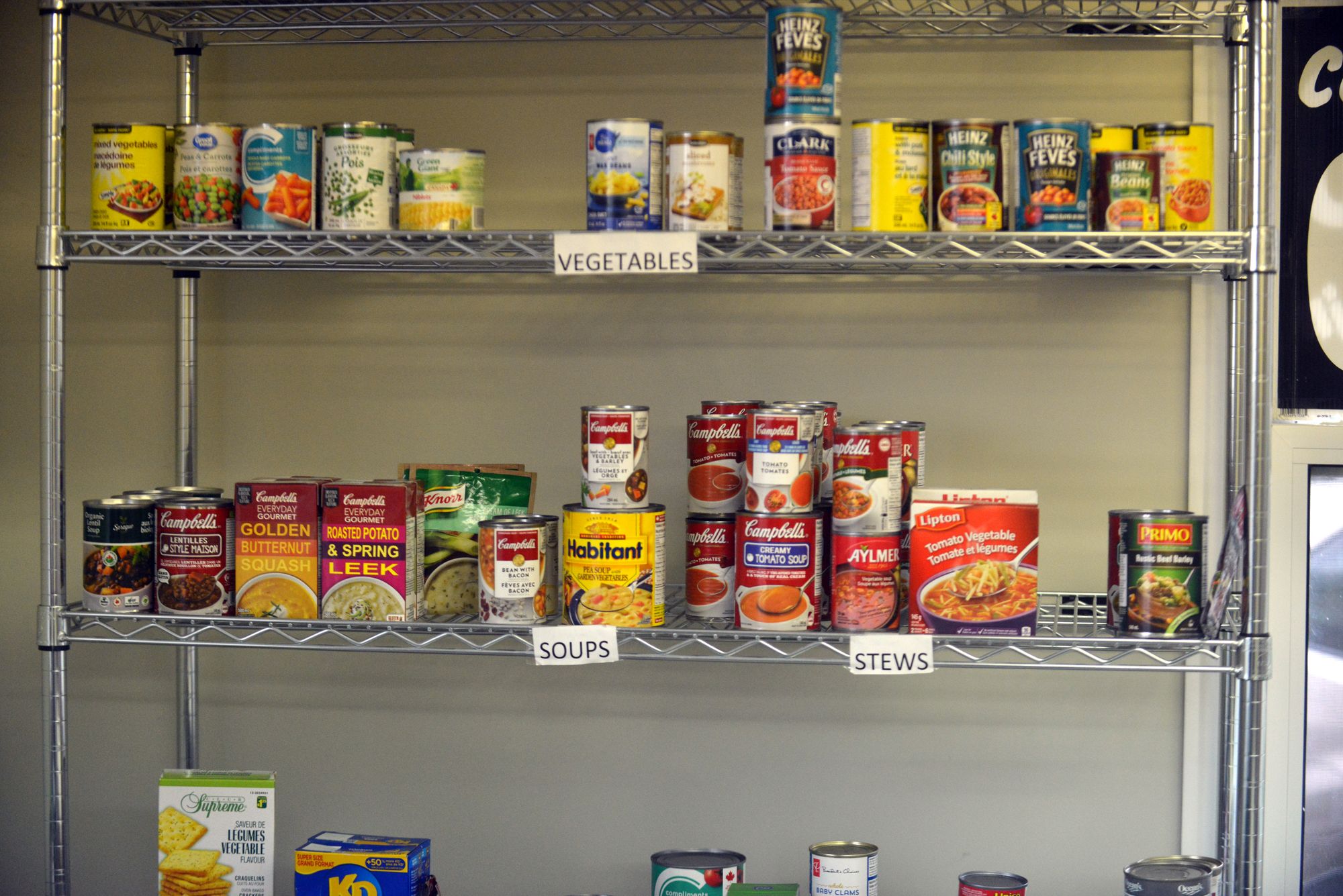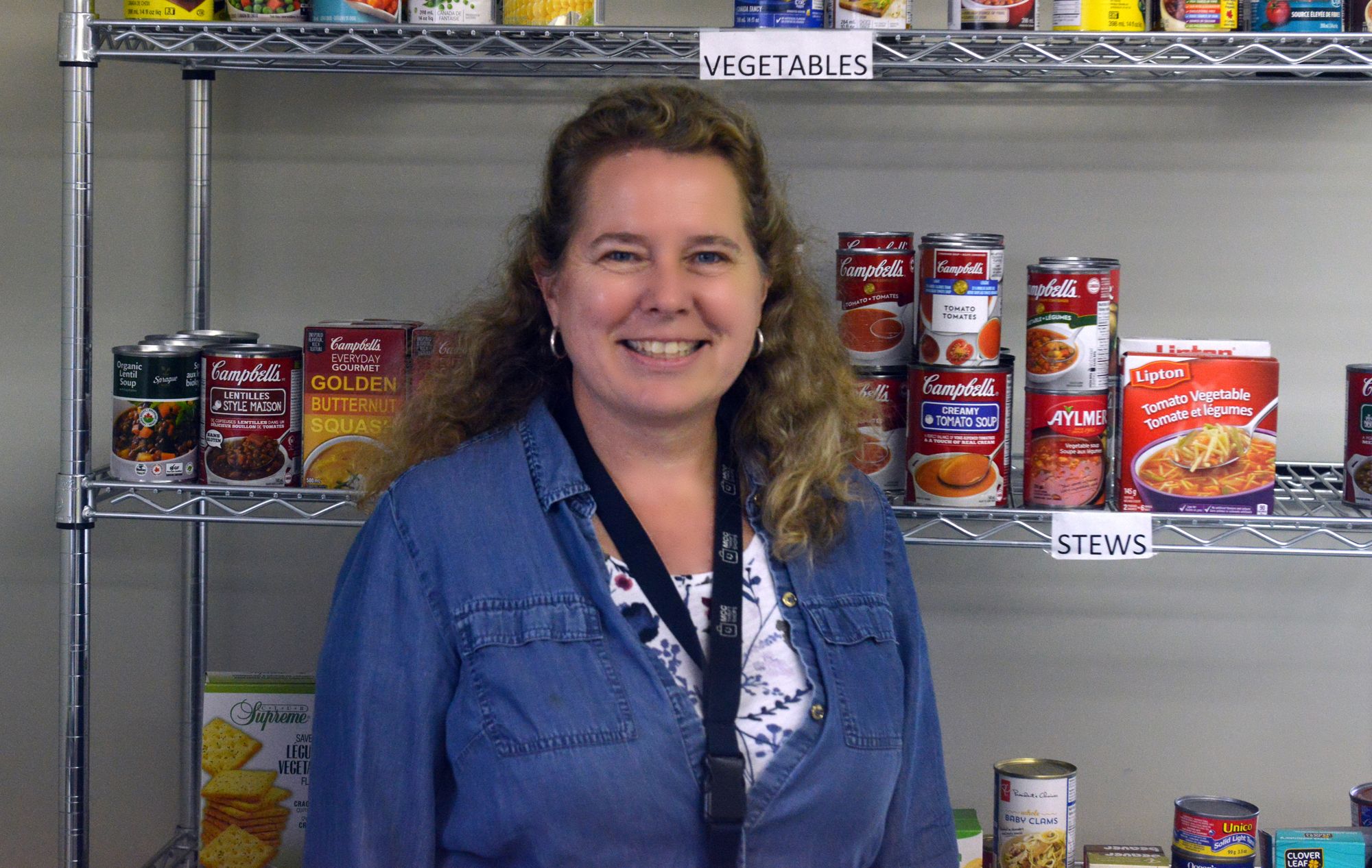Record-breaking demand for aid is putting enormous strain on food banks in the area, a situation that may not be sustainable even as more people rely on their services while facing inflated costs.
From the Food Bank of Waterloo Region down through community organizations such as the Wellesley Food Cupboard, the concerns are mounting.
The regional food bank saw more demand in March than in any month since it was founded in 1984.
Its records show 735 unique households accessed food assistance for the first time in March, an increase of 89 per cent compared to the previous year. There were also 7,783 unique households that were supported by the network and a total 20,539 unique individuals, a 46 per cent increase.
The food bank also provided 14,692 hampers in March, up 45 per cent compared to last year.
“It’s just not sustainable to see increases like this continue month over month. While we continue to work with our partners to ensure that we have a steady supply of food to provide to them, we are concerned if this continues to happen month over month whether it’s sustainable long term,” said Kim Wilhelm, interim CEO of the Food Bank of Waterloo Region.
Simply, the food bank may be unable to support people if the demand continues at this level, she noted.
“[Not] with the continued increases that we’re seeing. It’s a grim picture.”
According to Wilhelm, rising fuel costs play a large part in the challenges the food bank is now facing.
“It’s affecting individuals who have to pay more to put gas in their car. It’s affecting us as an organization who has to spend more on our trucks to ensure that food is safely distributed. It affects the manufacturers who aren’t willing to deliver food to us anymore. They are expecting us to pick up the food,” she explained.
Skyrocketing food costs have had an impact on how far donations can go, Wilhelm added. Previously, every dollar donated provided three healthy meals to those in need. That figure has dropped to two. Donations to the food bank have also gone down.
“They don’t have the extra in their budget to pick up something extra to place in the food baskets, and individuals don’t have extra in their budget to make a financial donation anymore. They’re putting all of their funds or a good chunk of their funds into purchasing basic necessities.”
The Wellesley Food Cupboard, operated by the Wellesley Mennonite Church, has also seen an increase in demand. It is currently supporting 55 adults and 84 children each month, which is around 20 per cent more than usual, said chair Christa Gerber, adding she’s unsure if the organization can keep up with increased demand.
“That is the question. How do you do that going forward? Is anybody sure? No, we’re definitely not sure,” she said.
However the food cupboard has actually seen strong support from the community and is coming off a successful Christmas fundraising campaign, Gerber said.
“It is interesting, because so far, we have seen amazing support out here in this community.”

Wilhelm said the increase of first-time users is due to the fact that some residents who were just at the line, such as those who may have been living paycheque to paycheque but were able to make it work, just aren’t able to do so anymore.
“Sometimes what we see in the sector is individuals may have a high repair [bill] and so they may find that, ‘OK, it’s not going to be easy, but we can stretch a little bit over the next few months to pay off this repair.’ But the reality is the funds to stretch over the next few months aren’t there anymore. They’re already potentially living in a deficit,” Wilhelm said of people joining the ranks of those using the food bank’s services.
This is similar to what is happening at the Wellesley Food Cupboard.
“Life is becoming very expensive, and the vast majority of people who are using the food cupboard have at least one working person in the home. These are people who are working full-time and just not able to make ends meet,” said Gerber.
Given that food banks were originally seen as a temporary measure when they were founded nearly four decades ago, Food Banks Canada is calling for governments to enact policies to address food insecurity.
For Wilhelm this means implementing a basic income program. She said that when the pandemic hit, they were expecting a big increase of food bank users. That wasn’t the case, however, because of government programs such as the Canadian Emergency Response Benefit (CERB). It wasn’t until that funding ended that the food bank saw increased demand.
“Then in the months that followed, we’ve had some other cost of living increases arise. And then it just started increasing more and more.”
While the forthcoming grocery rebate program should be helpful, it’s not likely to be enough said Wilhelm, noting that it amounts to less than $500 per family.
“Certainly that will help one month with groceries, maybe a repair, but what happens on the second month or the third month? It is disappointing the lack of investments in Canada’s economic plan to help tackle the root causes of food insecurity and poverty,” she said.
Gerber is encouraging more people to reach out to the local service if they are in need.
“We’re reaching who we are reaching, but I’m sure there’s a lot of families and households out there in our community that could use a helping hand, and we are here to help support you.”






